‘American Fiction’ Writer-Director Cord Jefferson On Working With Jeffrey Wright And The “Inherent Absurdity” Of How Race Is Perceived In America
- Oops!Something went wrong.Please try again later.
- Oops!Something went wrong.Please try again later.
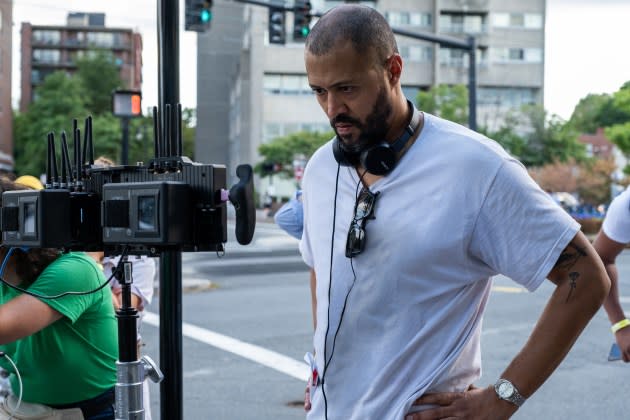
Encountering Percival Everett’s Erasure was serendipitous for Cord Jefferson, as he saw many similarities between himself and the character of Monk. He knew he needed to write and direct the film adaptation, and discovered the perfect casting when he began reading it in the voice of Jeffrey Wright. He ran into some difficulty finding studios willing to take a “risk” on a comedic satire of how the establishment profits from offensive tropes in Black entertainment. Luckily, T-Street Productions and Orion Pictures were willing to back the first-time director and from there the hilariously insightful American Fiction was born.
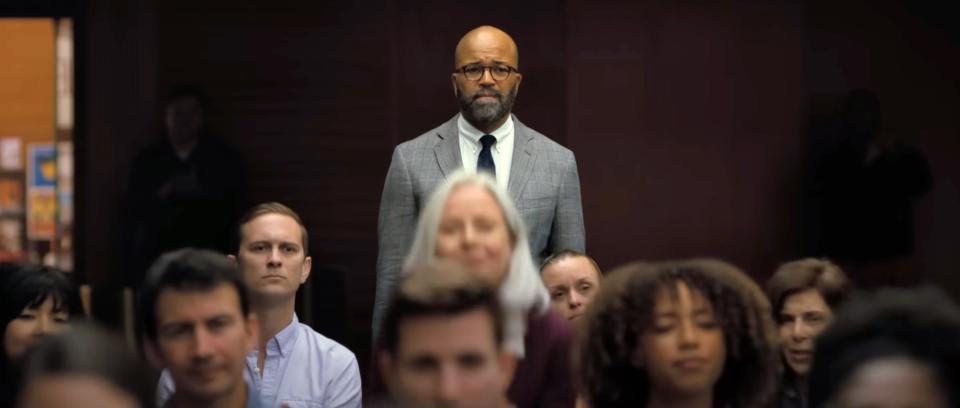
DEADLINE: How did you first find Percival Everett’s Erasure?
More from Deadline
CORD JEFFERSON: I, like most people in the world, had a very terrible 2020. Besides just COVID, I had this really huge professional failure in my life that year where I thought I was very, very close to getting a TV show on the air, and at the very last minute it was killed. They pulled the plug, and I was just devastated by it and was really feeling creatively adrift and not really knowing what I was going to do.
And so, that December, I was reading this review for a book called Interior Chinatown, and the review said that it was a satire reminiscent of Percival Everett’s Erasure. I didn’t read Interior Chinatown, but I went and bought Erasure and fell in love with it almost instantly. I’m a pretty slow reader normally, but every time that I wasn’t there with it, I needed to go back to it and continue reading it. It felt almost serendipitous. There’s the overlap of his professional life and mine, of course, but beyond the professional, satirical stuff, I have two older siblings and we have a difficult relationship from time to time. Sometimes there’s been ups and sometimes there’s been downs. Like the book, I have this overbearing father figure. My mother died of cancer, not Alzheimer’s, and I moved home to take care of her for a period of time. There were just all these strange overlaps with my personal and professional life and it just felt like this book was written for me in this very moment. I could relate to almost everything that was happening in the book, and I just felt like I knew it on a molecular level.
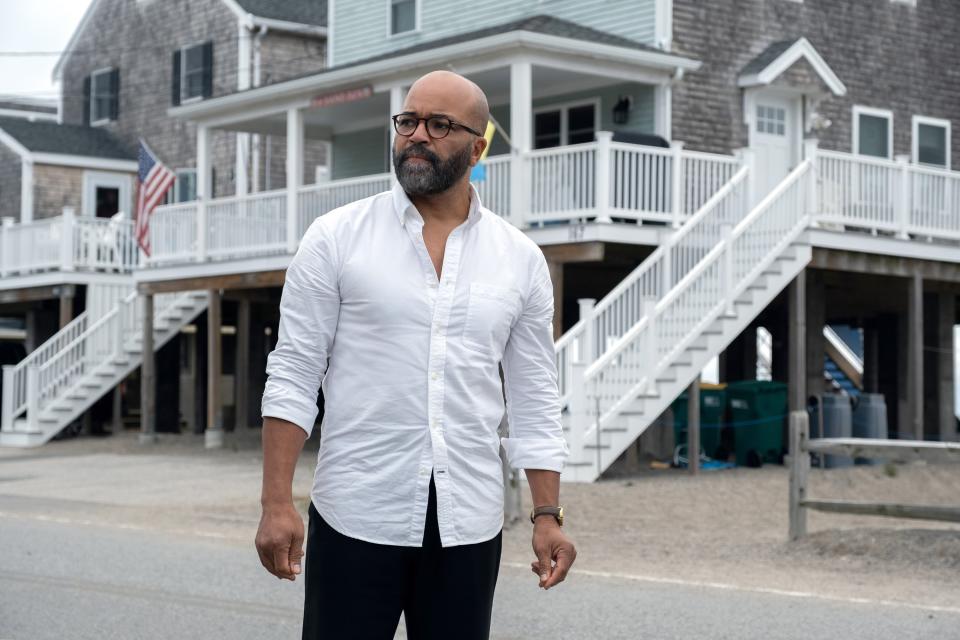
Pretty soon into reading it, I knew that I wanted to write the screenplay. A little after that, I knew that I wanted to write and direct it. And then, at some point, I don’t remember when, I started reading the novel in Jeffrey Wright’s voice. That’s how early I started thinking of Jeffrey for the character of Monk and I started picturing him in the scenes in the novel. The vision for it started taking shape pretty quickly.
DEADLINE: Where did the title American Fiction come from?
JEFFERSON: The title was originally F*ck when I sent out the script. It was by F*ck by Cord Jefferson, based on Erasure by Percival Everett. I kind of sent it out as a joke, just as a shocking gimmick to get people to read the screenplay. People in this industry have to read a lot, and so I think that anything that you can do to make your work stand out is helpful to get them to put it at the top of the pile to read instead of fifth or sixth in the pile when they’re going to be tired and have read so much. It was just like this is a way to get them to open the script right away.
But, as you’ve seen the film, there’s a method to the madness. There’s a reason why it could be called F*ck, and for a while, I was like, “The movie should be called F*ck.” It was this hill to die on where I was like, “No, it’s good. It’ll be shocking. People will wonder why it’s called F*ck, and then, once they get there, they’ll realize why it’s called F*ck. It’s meta. It’ll be funny.”
It took probably two or three meetings to talk me out of calling it F*ck and trying to do that, and at the last meeting, they were like, “Look, there’s a bunch of reasons we can tell you. The MPA won’t rate the movie. There’s going to be people who don’t want to carry the movie in their theaters if it’s called F*ck.” But they were like, “The number one reason is that, when you Google ‘F*ck Movie’, it’s just going to be pornography. Nobody’s going to find the film. That was actually a pretty practical concern that I understood.
Once we had moved past that, that was just the first step because then it was a months-long process to come up with the title after that. We batted around, I think, probably 20 to 30 different titles. People came in with options, and I didn’t like them. I would come in with options, other people wouldn’t like them. And we were getting very close to locking the movie, and they were like, “We need to come up with a title because we’re making title cards. What is the title going to be?” So, one night, I was like, “Tonight’s the night, man. We’re going to do it.” And I went home and I smoked a joint and I started reading poetry. I was like, “I’m going to get high, I’m going to read poetry, and something’s going to come to me.” And so, I read this Langston Hughes poem, “Let America Be America Again”, and I was like, “OK, America.” There’s a long line of good titles, like American History X, American Movie, American Beauty and American Splendor… there’s all these movies that I really like with America or American in the title. And then, American Fiction, I started thinking it’s a good publishing pun, obviously, that’s a bookstore pun, but also it deals with the big fiction of America and one of our big fictions in society, which is just race.
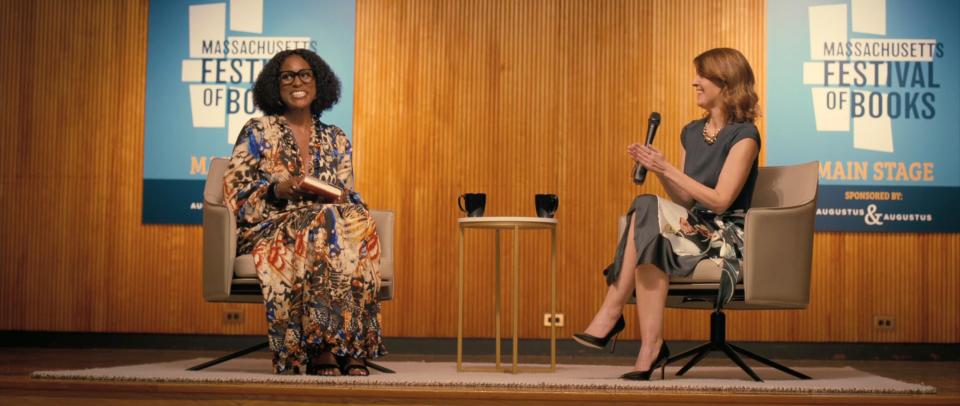
Race is this fictional thing. Race is both real and not real. It’s like every scientist will tell you that our, quote-unquote, racial differences are very negligible, that we’re just human beings. The idea of race is manmade and we know that, but then we’ve also structured our world in ways that suggest that race is real. We believe in this thing that is fictional, so it’s both real and not real. It felt like the inherent absurdity there is one of the things that the movie takes aim at. And so American Fiction just felt more layered than you might think just looking at it and it’s also easily Googleable. It hadn’t been used before. I sent it in the next morning, and that was the one that everybody immediately was like, “Yes, we found it.” Sometimes you just got to get stoned and read poetry. That’s the moral of the story.
DEADLINE: At least you got Monk to name the book F*ck.
JEFFERSON: Exactly. If this is ever released on DVD or something and we’re looking for extras, there’s this entire scene of the publisher’s side of the call, talking themselves into calling the book F*ck and allowing him to do that, it’s amazing. It’s just them. Those actors are so, so, so good, and they’re great improvisers. They’re so funny. But it just didn’t work with the rest of the film. It got too silly. It became a little too broad and farcical, but, my God, it’s so funny. I hope we can release it somehow someday.
DEADLINE: This film has a great balance between satire and comedy in a way that doesn’t go into making it a farce. How did you do that?
JEFFERSON: I said at the outset that I wanted to make a satire that didn’t ever become farcical. And I think that that’s the problem for me with a lot of the satires, sometimes intentionally but other times unintentionally. People set out to make satires that become farcical and it just collapses under the weight of the comedy and gets silly. I never wanted to do that. That was my goal from the outset. That being said, once we were on set, sometimes we didn’t hit that goal. Sometimes it did become a little farcical or a little too broad, or conversely, it became a little too dark and morose, and we got to a point where it was so low that it was difficult to pull out of that dip.
And so then, after that, we really found it sometimes on set, and I was just like, “Pull back a little bit. This is a little too big.” But then, other times, when we didn’t find it on set, we found it in the edit. That’s the great part about post, is that you can really shave down the edges on everything and really get what you’re going for.
DEADLINE: And you mentioned, when you were reading the book, you were reading it in Jeffrey Wright’s voice. I can’t imagine a better actor to play that character. How did he get involved?
JEFFERSON: He was the first person that we went to when the script was done. I was like, “Jeffrey or nothing.” He read it and he asked to meet me, so I went to meet him for a few hours one day, and we chatted for two or three hours about the script and about the book, and he asked very, very good questions, like somebody who’s probing a director and saying, “What’s the tone you’re going for? What other actors are you thinking of? What about this scene? What interested you about this project? Why are you excited about it?”—all the things that somebody who’s smart asks about a project that they’re considering. And the things that he asked me made me only more confident that he was the right guy for the job, because it showed me that he was thinking about these things in a way that I was thinking about these things, and also very excited to collaborate on these things.
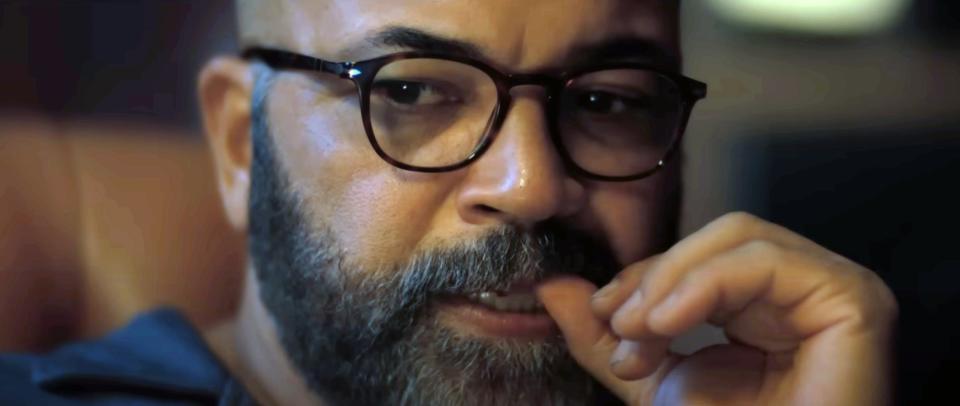
I was semi-worried that he’s Jeffrey Wright. He’s been in Angels in America. He’s on Wes Anderson’s speed dial. He’s in Batman. He’s in James Bond. He’s in Westworld. He’s literally in the biggest movies and TV shows in the world. That is his pedigree. So, I was a little worried I was going to meet somebody who was going to steamroll me and just be like, “OK, if you want me to be the star of the film, I’m going to run the ship.” Instead, he came in and was just immediately super collaborative, super interested and engaged with the material and excited to talk about the vision that I had and was just an incredible artistic collaborator from day one.
As soon as I met him, I knew that, but then he went away for another month and he was like, “I’m going to go read the script again and read the book maybe.” And so then he went away and did that, and then we met again six weeks later, again, talked to me for a couple hours and was feeling it out, and then he went away again for another month or two. I think it took three or four months finally from me first meeting him to getting him to sign on. But once Jeffrey signed on, it legitimized the film in a lot of people’s eyes. The financiers were willing to come up with more money. Other actors were more excited about the project, because it’s like, “Oh, God, Jeffrey Wright’s on this, I want to work with Jeffrey.” It got the project on its feet in a very real way when he came on and I’ll be forever grateful to him for that.
DEADLINE: Let’s talk about his character, Monk. He has a very real and justified annoyance with the fact that the only stories that are selling are of horrible Black experiences, but in the same way, he’s also dictating to other Black people what is unacceptable for them to do. Can you talk about the dichotomy of that character?
JEFFERSON: On the last page in the book, there’s this Latin phrase that I had never encountered before, but it’s apparently used in relation to complex mathematical equations, and the rough translation is “I offer no hypothesis.” For me, maintaining the spirit of the novel meant not being didactic, not trying to tell anybody, “Here’s the moral of the story. This is the lesson you’re supposed to take away.” It’s not a persuasive essay. It was a film that, like the book, I wanted to present a series of characters and ideas and scenes and then let people make their own decisions.
Unlike me however, Monk is very didactic. At the beginning of the story, Monk is arguing with everybody. He’s arguing with his students, his colleagues, his family, his romantic partners… He’s just a pugnacious guy who’s just constantly bickering with everybody, and he’s bickering with everybody because he believes that he’s right.
Another thing that we didn’t want to do in the film was police Blackness or police art. I never wanted this to feel like respectability politics, like this is how you need to speak and behave. That’s the farthest thing from what we wanted to accomplish. Monk, on the other hand, does feel like he knows the best way for everybody to live. He’s arrogant. He’s angry. He’s dealing with a lot of pain and frustration because his father’s dead and because he’s alienated from his family and because he doesn’t have a romantic partner and because he wants his work to be more popular than it is. He’s just dealing with a lot of frustration and pain, and he’s taking that out on everybody around him. And the way that he’s presenting that anger and pain is just this aloof arrogance like, “Oh, well, I’m better than you guys, and you guys are down here in the muck making crappy art.”
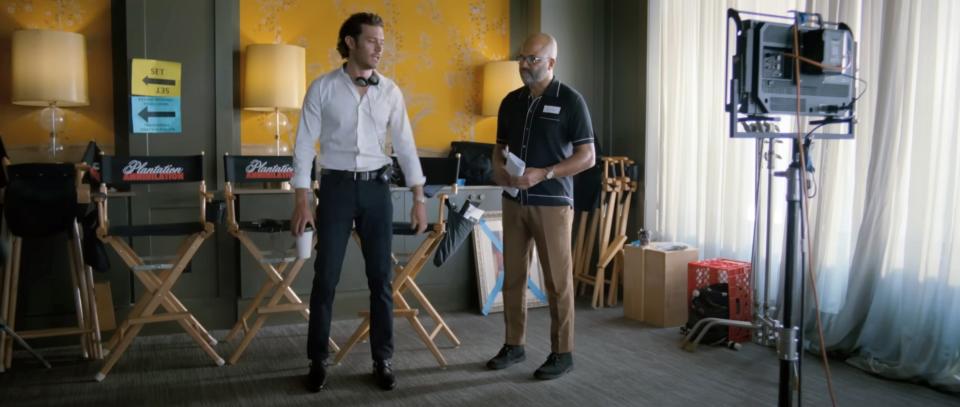
Monk has a few bits of growth by the end of the film. One of the ways that I think you see Monk change is when he comes out at the end of the film, and he has that very final moment with the guy who’s playing the slave in Plantation Annihilation and Monk gives him that head nod and they have that shared look. The way that I interpret that moment is Monk has finally grown to realize that he’s not on an island anymore. He realizes that this guy is working with an institution and a system that existed long before he was around, and so what he’s realizing is this guy’s just an actor. He’s just trying to be an actor. He wants to live a life as an artist, and he’s acting, and this is the part that he was given because he’s in this system.
Monk wants to be didactic and he wants to tell everybody, “This is the right way to live,” and I think that what Monk realizes by the end of the story is that directing his anger at other artists who are just trying to make art and survive and get by in the world, that that’s always been a misdirected rage. And it’s like he looks at that guy as no longer, “You’re my enemy and I’m trying to fight against you, and I’m on this righteous crusade and you’re blowing things for me,” as opposed to just like, “Oh, we’re in the same struggle. We’re fighting the same fight, and good luck in that.”
That, to me, is what he eventually learns and what he takes away from it. But you’re right, the movie intentionally avoids doing that, because I never wanted to do that. I never wanted the movie to be about policing Blackness.
DEADLINE: I also feel like that experience is universal for a lot of different groups of people. As someone who’s queer, seeing all these films that are like, OK, the queer person dies, or it’s like they’re gay and that’s the conflict of the story. Like, come on man.
JEFFERSON: Exactly. I have Mexican friends who say, “Why is everything about Mexico drug cartels or somebody fleeing their horrible circumstances in their small Mexican village to escape to the promised land of the United States?” It’s like, yeah, certainly that stuff is real, but also there’s a whole lot of Mexico that has been unexplored, and it doesn’t have to be shot in this weird orange-ish brown color, the gel that they put on all the shots in Mexico. Something that I try to clarify for people is that, yes, this movie follows a Black author and a Black family, but hopefully, the themes are applicable to a lot of other people’s lives, because I know a lot of people who are feel like there’s a very rigid perspective when people look at their stories and culture, and I think it’s queer people and Latinos and a lot of other people too.
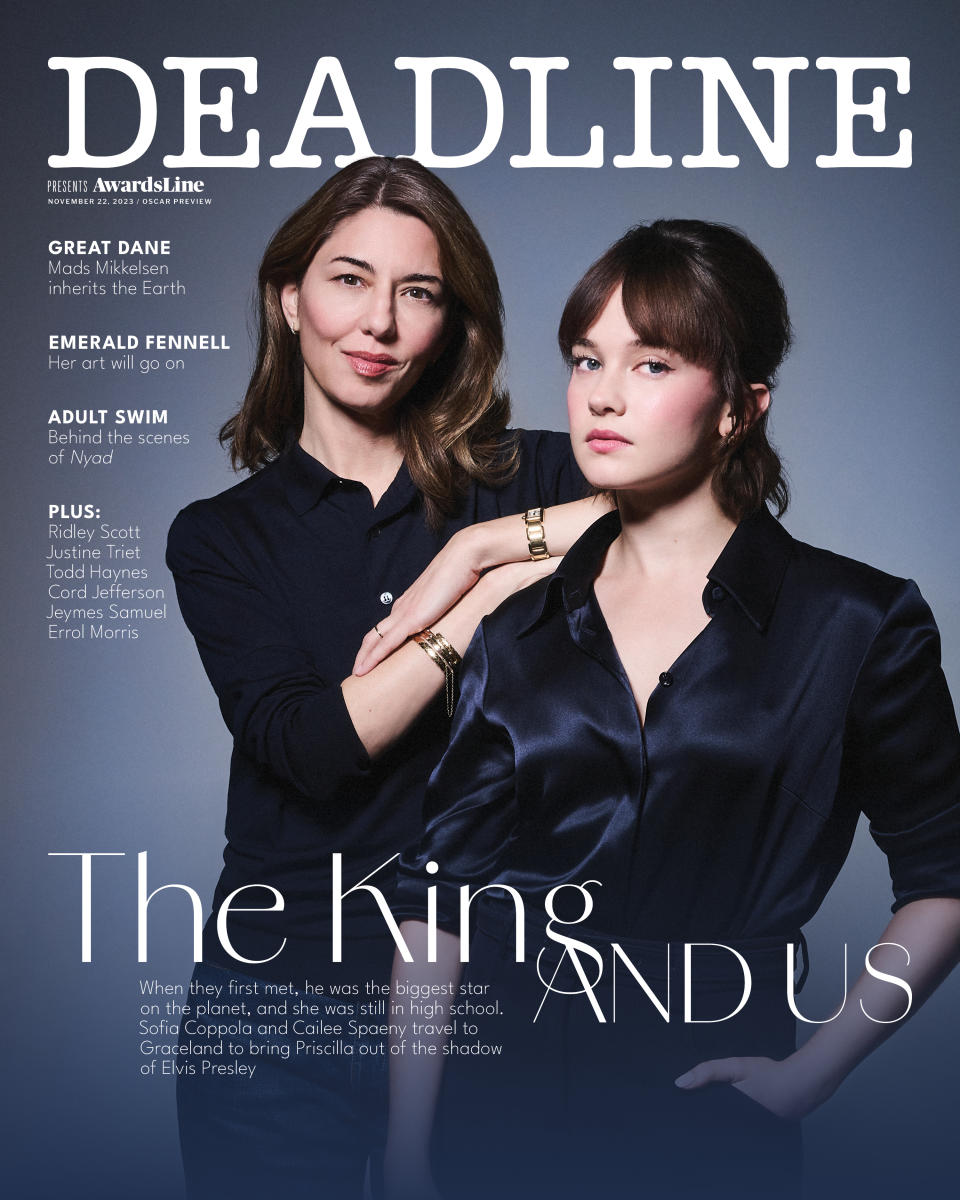
DEADLINE: What were some of the biggest challenges for you making this?
JEFFERSON: To be honest, just getting people on board. This movie was made relatively quickly thanks to T-Street Productions and Orion Pictures, but if it weren’t for T-Street and Orion, there’s a world in which this movie doesn’t get made. This is a movie that, when I took it out, the people were very excited about the script and it was like, “Oh, my God, the script is so great. Oh, my God, you got Jeffrey Wright. What a project. Oh, we’re so excited.” And I met with 14 different distributors, all of whom had nothing but glowing things to say in all the meetings, and then, after all the meetings were done over the course of a week and a half or two weeks, nobody really made an offer.
Two people made an offer. Orion made an offer, and then another company made an offer for millions of dollars less than the production budget of the film. So really just one place made a real offer out of 14 or 15 places. And the response of the places that didn’t was always, “Oh, my God, I love this script. I really wish I worked at a place where we could make this movie. We just can’t make it.” And the places that are telling me this are regularly making $200 million movies. Multiple times a year, they’re making movies that cost hundreds of millions of dollars. They can make the movie, they just don’t have the will to make the movie. They don’t have the courage to make the movie because they don’t want to risk anything.
Either the material is risky or they think me being a first-time director is risky. I don’t know what it is, just that there was some risk involved to it that they didn’t like and that they didn’t want to take on. And so, it’s basically thanks to three people that this movie exists. Three people. It found the right three desks to get on, and thanks to those people, the movie was made.
Best of Deadline
2023 Premiere Dates For New & Returning Series On Broadcast, Cable & Streaming
2023-24 Awards Season Calendar - Dates For Oscars, Emmys, Grammys, Tonys, Guilds & More
Greta Gerwig To Receive Palm Springs Film Festival's Director Of The Year Award
Sign up for Deadline's Newsletter. For the latest news, follow us on Facebook, Twitter, and Instagram.

